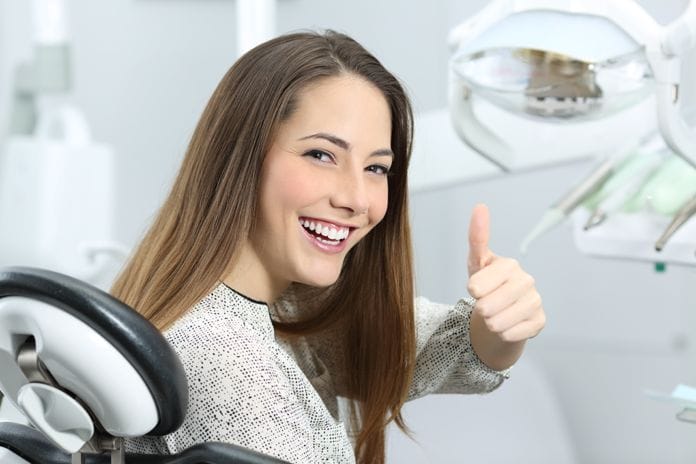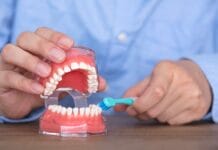Oral health promotion plays a primary part in our role as Registered Dental Hygienists. We are in fact, Oral Health Practitioners. How often though, do our patients come through those revolving dental doors every three, four, or six months with the same deposits, plaque, and lack of oral care they present with time after time? It cannot be our fault; we did such an amazing job “cleaning” their teeth, educating with home care instruction, and product recommendations. Or are we part to blame?
I recently learned through an action research project at O’Hehir University that some of those fingers point right back at us. Oral Health Promotion involves LISTENING to our patients and LEARNING why their behaviors have or have not changed. The key to active listening is the use of open-ended questions, starting with the health history.1 A plethora of information can be divulged about a patient simply from reviewing the health history. Are they a smoker? Are they diabetic? What medications may be contributing to dry mouth discomfort and decay? Do they have dental anxieties from past dental experiences? Using such information is fuel for the open-ended questions asked during discussion time before treatment.
Using open-ended questions entices patients to talk more freely about their particular situation. 1 It helps patients open up with two-way conversation which frees the practitioner to show understanding, genuine concern, and is a guide for best treatment options and recommendations. This affirmation builds patient-practitioner confidence. Once trust is built, a relationship will most likely develop beyond “just a cleaning.” By repeating back to the patient what you understand to be their concern keeps the conversation and trust running. When you, as a healthcare practitioner, believe to have a good understanding of what the patient is conveying, it is important to summarize your discussion to comprehend the patient’s viewpoint accurately.1 This summarization gives the patient your “stamp” of approval and understanding.
Making thorough chart notations will help when referring to previous discussions or recommendations.1 For instance, “So how are you doing trying to quit smoking?” “I know last time you were here, you were trying to quit cold-turkey.” Or, “How does your mouth feel since using the xylitol products?” This is a great lead into a conversation that shows genuine care and concern for the patient. Learning more about the patient through active listening and the use of open-ended questioning enables you to become a whole-health practitioner and not just a “teeth cleaner.” The patient leaves feeling that they were treated with respect and with the knowledge something more than “just a cleaning” took place. You may be surprised when they arrive for their next dental visit eager and proud to show you their healthier mouth. As oral health professionals, we are highly educated and have a lot to share with our patients above and beyond the standard of care.
Introduce new ideas to patients, especially if 20 years of recommending flossing with a string doesn’t bring results, or if brushing techniques are not getting the patient to a state of health. Think outside of the box by recommending new products and ideas. Customizing recommendations enables your patient to experience and realize you are actively involved in your profession and giving them the best care. Please STOP, re-evaluate how YOU as a practitioner are educating, and try motivational interviewing with open-ended questions.
I encourage dental practitioners, whether Registered Dental Hygienists, Dentists, Assistants, or Front-Office Staff to read the textbook titled, “Health Behavior Change in the Dental Practice” by Christoph A. Ramseier and Jean E. Suvan. This textbook has changed the way I interact with my patients, and the patient response has been phenomenal. Be prepared for lots of hugs and healthier patients. Just this past week, a patient brought in an infinity scarf and hat his wife knitted for me. He said they appreciate the extra care I had given them. I know the insight I have gained through reading this textbook has been a blessing to my career. It would be great if every dental hygiene program taught their students about the importance of Motivational Interviewing through the use of open-ended questioning. I can only imagine the changes I could have made in more of my patient’s lives if I had read this book earlier in my career.
I believe in working smarter, not harder, and know that our patients’ good oral health and willingness to comply is part of that equation. Hint, open-ended questioning also enhances personal communication skills with friends and family as well!
SEE ALSO: How Dental Hygienists Can Help Patients with Dental Phobias
DON’T MISS: Medical History: Your Patient is Not Telling You Everything
References
- Ramseier C, Suvan J. (2010) Health behavior change in the dental practice. Hoboken, NJ: Wiley-Blackwell.












